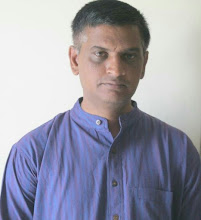 In the early 1800s, in the small, sheltered village of Vilakkudi in the Tanjore district of Tamil Nadu, Ranganathan, a small-time landowner, was raising his children, at the time unaffected by British rule in India or upheavals in the rest of the world. As time passed, railways were built and newspapers appeared; isolated villages like Vilakkudi were exposed to social and cultural change. It is this transition that the author, Ranganathan’s great-great-great grandson, tries to trace through the story of his family.
In the early 1800s, in the small, sheltered village of Vilakkudi in the Tanjore district of Tamil Nadu, Ranganathan, a small-time landowner, was raising his children, at the time unaffected by British rule in India or upheavals in the rest of the world. As time passed, railways were built and newspapers appeared; isolated villages like Vilakkudi were exposed to social and cultural change. It is this transition that the author, Ranganathan’s great-great-great grandson, tries to trace through the story of his family.Anecdotal and fascinating, A Comma in a Sentence includes the experiences of Ranganathan; of Ooshi, the author’s great grandfather, who was deeply concerned by the mismanagement of the great Madras famine by the British (an incidental benefit was that the family could earn a wee bit more out of paddy in those years); Gopalan, the author’s grandfather, who encouraged modern school education for his children; Rajam, the author’s father, whose generation moved to the cities for the first time to find work in colonial Calcutta; and R. Gopalakrishnan himself, whose generation was the first to attend college and whose children—the present generation—were fortunate to study in universities like Stanford and Harvard.
Told in lucid, insightful prose, this story provides a microcosmic view of the societal changes India has seen over the past two hundred years.






